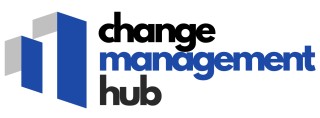Understanding the Role of Empowerment in Change Management
The Significance of Empowerment in Navigating Change
Empowerment is a cornerstone of successful change management, crucial in enabling both team members and stakeholders to adapt and thrive during transformation. In project management, understanding how to empower individuals involved in a project is essential in enhancing work performance and ensuring project success.
At the heart of empowerment lies the ability to make informed decisions. By delegating decision making authority, project managers can create a culture of trust and accountability. This approach not only empowers team members but also contributes to stronger engagement and commitment to tasks. It allows individuals to utilize their strengths, improving overall productivity and work quality.
Empowerment involves not only dividing tasks but offering appropriate training and support. This can be achieved through carefully curated training sessions, where emotional intelligence is developed, enabling team members to manage stress and adapt to change effectively. Such training also prepares them for the PMP exam and other certifications that bolster their capabilities in managing projects effectively.
When teams and stakeholders feel empowered, they contribute to a positive work environment where risks are managed proactively and objectives are achieved efficiently. Empowerment encourages a shift from traditional management styles to more collaborative and inclusive strategies. This change fosters a shared vision, making all involved parties work towards common goals enthusiastically.
Key Strategies to Empower Team Members
Effective Strategies for Bolstering Team Empowerment
Empowering team members is a crucial step to ensure successful project outcomes. It involves enhancing their ability to perform tasks effectively while fostering a sense of ownership and accountability within the team. Here are some notable strategies that project managers can employ to empower their teams:- Decentralize Decision-Making: Allowing team members more autonomy in their roles can significantly boost empowerment. By delegating authority for certain decisions, project managers can harness team strengths and enhance emotional intelligence across the board. This helps in creating an environment where team members feel valued and confident in their ability to contribute effectively.
- Encourage Continuous Learning and Training: Providing ample opportunities for training ensures that team members are equipped with the necessary skills for task accountability. Regular updates and training sessions can bolster team performance, helping individuals stay ahead in their respective areas of expertise.
- Foster Transparent Communication: Open channels for communication are vital for empowering team members. By being approachable and promoting an open-door policy, project managers can cultivate an atmosphere of trust where team members feel comfortable posing questions and discussing project-related issues.
- Recognize and Reward Efforts: Recognition goes a long way in empowering individuals. Acknowledging the hard work and accomplishments of team members can motivate them to maintain high performance levels and strive for project success.
- Provide the Right Support Systems: Ensuring that team members have access to adequate resources and support is key to enhancing their productivity. This includes offering support tools, such as risk management software, that aid in efficiently tracking and managing tasks.
Engaging Stakeholders Effectively
Fostering Stakeholder Engagement
Engaging stakeholders effectively is a pivotal element of project management that can significantly influence the overall success of a project. Stakeholders, whether internal or external, play a critical role in contributing to the project’s progression and must be considered throughout the change process. Effective engagement helps in building trust, gaining valuable insights, and securing necessary support for the project.
One of the primary steps in engaging stakeholders is to communicate openly and consistently. It is important to keep all stakeholders informed about the project's progress, challenges, and successes. Regular updates and meetings can help in addressing any questions or concerns, thereby reducing resistance and increasing support. Additionally, understanding the specific needs and expectations of each stakeholder group can help tailor communication strategies that resonate best.
Moreover, identifying the key influencers within stakeholder groups and understanding their interests can enhance your ability to engage them effectively. Leveraging emotional intelligence and active listening skills can help in understanding these needs more deeply, thereby allowing project managers to make informed decisions that align with stakeholders’ objectives.
Accountability and transparency are also essential in fostering trust among stakeholders. Clearly defining roles and responsibilities, while ensuring that tasks are tracked and managed effectively, will boost team performance and project accountability. Encouraging stakeholders to participate in decision-making processes creates a sense of ownership and commitment to the project goals.
Support teams can play an integral role by providing training and resources necessary for stakeholders to perform work effectively and contribute meaningfully to project success. Empowering team members and stakeholders not only boosts confidence but also provides a foundation for innovation and creativity within the team.
To deepen your understanding of stakeholder engagement strategies, explore strategic insights on boosting stakeholder drive in the face of change.
Tools and Techniques for Empowerment in PMP
Essential Techniques to Empower Your Team in Project Management
In the dynamic field of project management, empowering your team plays a crucial role in achieving project success. With strategic techniques, you can enhance both team and stakeholder empowerment in PMP. Here's how.Encouraging Open Communication
Fostering an environment where questions are welcomed and collaboration is prioritized promotes trust. By encouraging team members to voice their ideas and concerns, you ensure that diverse perspectives contribute to decision making. This open dialogue helps in tracking potential risks and enhancing team strengths.Delegating Task Accountability
Empowering teams through task accountability is critical. Assign clear roles and responsibilities, allowing team members to take ownership of their work. By giving them authority to make decisions, you instill a sense of responsibility and support individual leadership growth within the work team.Providing Necessary Training and Support
Training is a pivotal aspect of empowerment. Investment in skill development not only boosts team members’ confidence but also improves team performance. Offering support ensures that they are well-equipped to tackle challenges, and regular training helps reaffirm their capability and commitment.Leveraging Emotional Intelligence
Project managers should employ emotional intelligence to understand and manage team dynamics effectively. Recognizing individual strengths and emotions facilitates stronger interpersonal relationships and aids in managing potential conflicts, ensuring a coherent and motivated work team.Utilizing Project Management Tools
Employing the right project management tools can enhance productivity and efficiency. Tools that assist in tracking work progress, managing task accountability, and offering a birds-eye view of the project can empower team members by providing clear insights and data. Project managers who actively adopt these empowering techniques will find themselves leading successful and agile projects. By focusing on communication, accountability, training, emotional intelligence, and tools, empowerment becomes a tangible strategy for transformation within teams and among stakeholders.Overcoming Challenges in Empowerment
Confronting Barriers in Empowerment Initiatives
Empowering your team and stakeholders in project management isn't devoid of hurdles. For project managers, identifying these challenges early and addressing them effectively can mean the difference between setbacks and seamless progress.- Lack of Trust: Building trust among team members and stakeholders is foundational. Encourage transparency and open communication to enhance trust. This ensures everyone is comfortable with decision-making and task accountability.
- Resistance to Change: Change can be daunting for people involved. Project managers should leverage emotional intelligence and offer support and training to members stakeholders, solidifying their confidence in their roles within the project.
- Insufficient Resources: Sometimes empowerment is hindered by a lack of resources. Ensuring your work team has what they need to succeed—including tools, training, and a conducive work environment—is imperative for effective management.
- Unclear Responsibilities: Clarity in roles and decision-making authority is crucial. Define responsibilities explicitly to avoid any confusion among team members, allowing them to perform work efficiently and feel empowered.
- Overcoming Hierarchical Barriers: Traditional hierarchies can stifle creativity and empowerment. Fostering a culture where accountability is based on merit and expertise allows for enhancing team performance and project success.
- Maintaining Engagement: Stakeholders and team members need to stay proactive and involved. Regular check-ins, feedback sessions, and recognition of team strengths can support team engagement throughout the project.
Measuring the Impact of Empowerment
Assessing the Effectiveness of Empowerment
In project management, gauging the impact of empowerment on your team and stakeholders is pivotal. By systematically tracking and evaluating its effectiveness, you can enhance both leadership and project outcomes.
Set Clear and Measurable Goals
Start by establishing clear, measurable objectives for empowerment initiatives. Objectives should relate to decision making, task accountability, and leadership performance. Are team members with newfound responsibility showing improved work efficiency? Are stakeholders more engaged and supportive?
Utilize Feedback Mechanisms
Regularly collect feedback from both team members and stakeholders to gauge the effectiveness of your empowerment strategies. This could involve formal surveys or informal conversations. Address questions such as: How has the team's performance improved? Are stakeholders satisfied with their level of involvement?
Monitor Key Performance Indicators (KPIs)
Define specific KPIs to track the progress and effectiveness of empowerment efforts. KPIs may include improvements in task delivery times, increased stakeholder involvement, or enhanced team decision-making capabilities. These indicators provide tangible evidence of project success and leadership efficacy.
Leverage Emotional Intelligence
Incorporating emotional intelligence in leadership decisions is essential in assessing empowerment. Leaders who recognize and manage emotions effectively can foster a more supportive work environment. This, in turn, boosts team performance, allowing members to perform work with enhanced motivation and collaboration.
Facilitate Ongoing Training and Development
Continuous training and development can amplify empowerment's benefits. Engaged team members often exhibit greater accountability and authority in their roles. PMP training, risk management workshops, and leadership seminars equip teams to confront challenges confidently.
Refine Strategies Based on Outcomes
Finally, evaluate the data and outcomes to refine your empowerment strategies. If certain approaches aren't yielding the desired results, adjust your methods. Adaptability ensures that both the team and stakeholders continue to feel empowered, ultimately leading to sustained project success.









